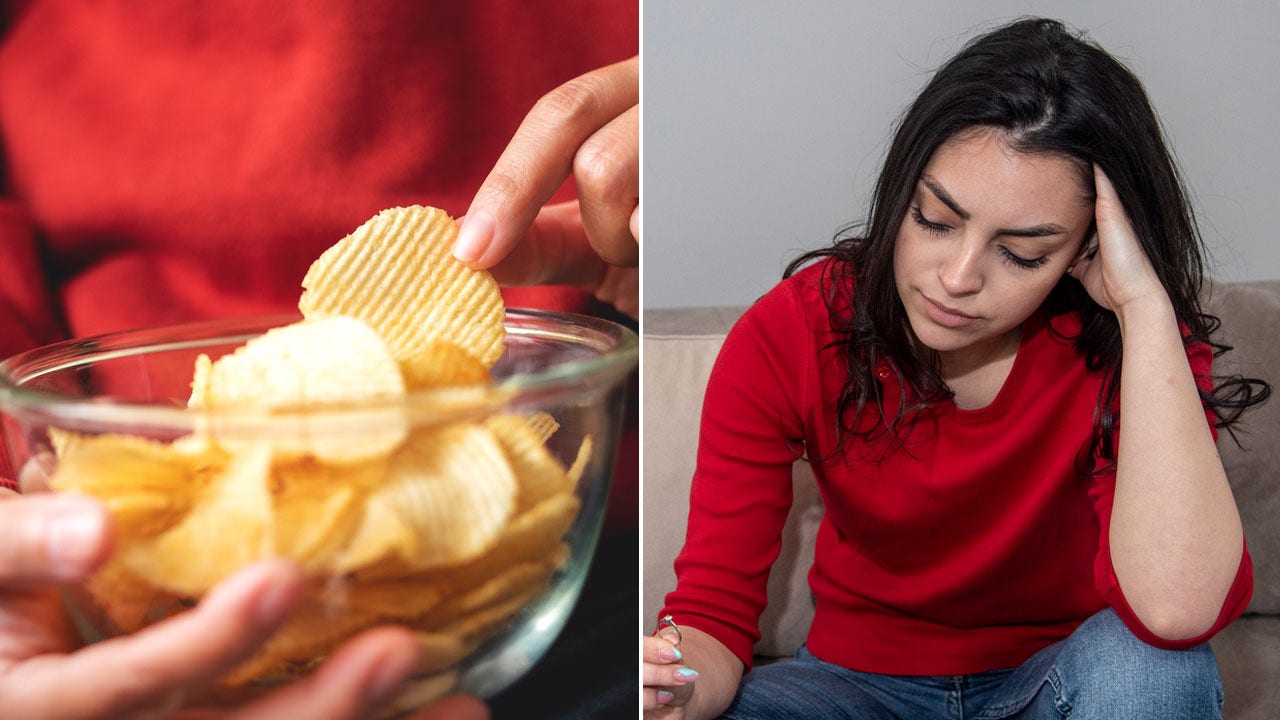Eating Ultraprocessed Foods Increases Risk of Depression, Study Finds
That bag of chips or slice of frozen pizza might make you happy while you’re eating it — but it could make you more susceptible to sadness long after the last bite.
A recent study published in the journal JAMA Open Network has discovered a link between consuming “ultraprocessed” foods and a higher risk of depression. The researchers, from Brigham and Women’s Hospital and the Harvard T.H. Chan School of Public Health, analyzed the eating habits and mental health of over 31,000 women between the ages of 42 and 62.
The study utilized data from the Nurses’ Health Study II conducted between 2003 and 2017. Participants completed a food questionnaire every four years to disclose their consumption of ultraprocessed foods (UPFs).
UPFs were categorized into nine groups, including ultraprocessed grain foods, sweet snacks, ready-to-eat meals, fats and sauces, ultraprocessed dairy products, savory snacks, processed meat, beverages, and artificial sweeteners. These foods typically contain preservatives, stabilizers, bulking agents, artificial colors, and flavors.
The study found that individuals who consumed higher quantities of ultraprocessed foods, particularly artificial sweeteners and artificially sweetened beverages, were more prone to depression. The researchers hypothesized that this association could be due to chemical changes in the brain caused by artificial sweeteners.
The study accounted for various factors that could influence the risk of depression, such as age, body mass index, physical activity, smoking, sleep health, chronic pain, alcohol consumption, income, and existing medical conditions. It concluded that those with the highest intake of ultraprocessed foods had a 34% to 49% increased risk of depression.
While this research has shed light on the link between ultraprocessed foods and depression, it does have limitations. The study had a primarily non-Hispanic White female sample, and it was purely observational. Further research is necessary to explore the connection between ultraprocessed foods and depression in more diverse populations and through controlled studies.
It’s important to consider social determinants of health and access when discussing dietary choices and mental health. Making small dietary changes, such as swapping processed snacks for fruits, nuts, or vegetables, can have a positive impact on mental well-being. Choosing natural sweeteners like honey or maple syrup over artificial sweeteners is also recommended.
Ultimately, striving for a diet rich in whole foods, such as fruits, vegetables, nuts, beans, seeds, whole grains, and lean proteins, is essential for overall physical and mental health. However, it is essential to note that not all ultraprocessed foods are the same, and moderation is key.
Reducing the consumption of both artificially and naturally sweetened beverages and foods can significantly benefit both physical and mental health. It’s necessary to be mindful of added sugar intake and follow recommended guidelines.
In conclusion, while this study suggests a correlation between ultraprocessed foods and depression, more research is needed to establish a causal relationship. Nonetheless, making informed dietary choices and incorporating healthier options can contribute to better mental well-being.
Denial of responsibility! Vigour Times is an automatic aggregator of Global media. In each content, the hyperlink to the primary source is specified. All trademarks belong to their rightful owners, and all materials to their authors. For any complaint, please reach us at – [email protected]. We will take necessary action within 24 hours.


